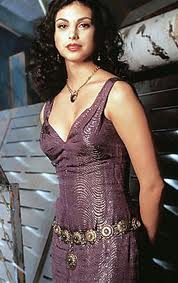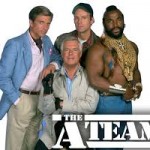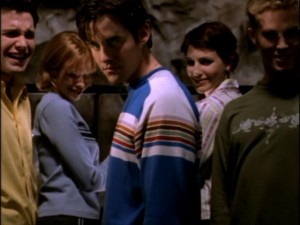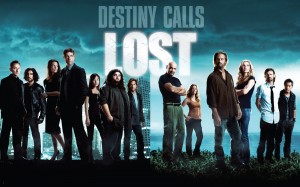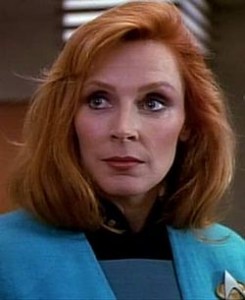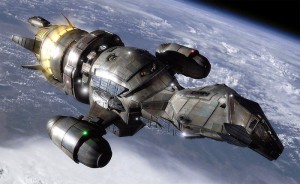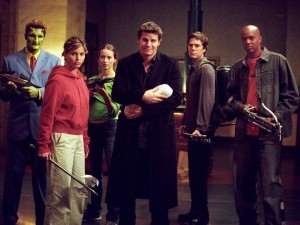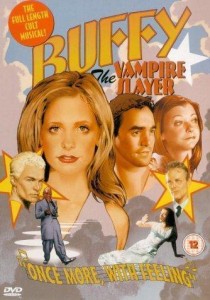What I Learned from Cult TV: Behind Every World Saving Hero Is A Geek Support Character
It has been said that cool is fleeting and the geek shall inherit the earth. I took a lot of comfort from that as a child. I grew up with the fictional company of plenty of geeks, who might not have saved the world, but they are standing rock solid behind the people whose job it is to save it. Cult TV taught me that no hero, let alone superhero, is anything to be reckoned with if they don’t have their tech wonder, programmer, computer whizz, inventor or scientist backing them up to the hilt.
It’s a time honoured tradition, one which dates back through some of the most classic geek series. Steeped in knowledge, willing to research, but absolutely prepared to get their hands dirty if the need should arise and their hero needs some more practical support, every hero needs their Geek Support character to help them save the day. The Geek Support is always steeped in knowledge, usually on the nerdy side. Medical science was certainly Dr Watson’s forte, while Q has the resources of MI6 at his disposal to come up with as many inventions, gadgets and gizmos as the 00 agents require in order to get the job done.
Watson and Q are both unusual in their early Geek Support roles however, in that they manage to get out from their labs and into the field to provide active support for their heroes. Watson not only supports Holmes during his investigations, but is armed and dangerous when it comes to protecting and defending his friend. Q, meanwhile, goes so far as to leave the confines of MI6 and meet up with Bond when he has gone rogue to avenge the attack on his friend Felix Lighter in ‘License to Kill’.
Traditionally, the general role of the Geek Support leaves such characters stranded within the safe confines of headquarters rather than allowing them out in the field. During the 1960s series Thunderbirds for example, the aptly-named Brains is the driving force creatively behind the Anderson Family’s International Rescue project, but it’s the sons of the family who actually pilot the thunderbirds and save the day. Even Lady Penelope gets to see more actions than the scientist responsible for the organisation’s potential.
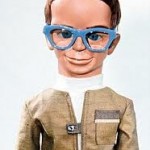
Fast forward to series from the late 20th and early 21st century and we find that has changed in that regard, especially when it comes to TV series about espionage. No secret agent is complete without their technical support department, usually staffed by a grade A nerd who is rolls high on the intellect and low on the social skills. They’re indispensible even though they sometimes happen to be working for the enemy. Marshall fills the Q shaped role for Sidney Bristow in Alias while she works for SD6, and over in ‘Nikita’, Birkhoff provides a similar line of support for the Division agents such as Alex. However, episodes where they enter into the field are few and far between, and their presence is often defined by the overly technical explanation of the new gadget our heroes get to test out this week.
Geeks working for Government organisations do fare a little better in terms of being part of the action, although their role is often to restrain it and minimise it rather than encourage and propagate it. While the likes of General Hammond from Stargate SG1 and the X-Files’ Walter Skinner may be hyperaware of the value of Geek Support, this is because they prevent the more gung ho and obsessive heroes from cutting a swathe through the universe leaving a trail of destruction and chaos in their wake. While Jack O’Neil might be the original action hero who’s all about blowing it up with C4, Stargate Command had enough nous to add Samantha Carter (astro-physicist) and Daniel Jackson (archaeologist and historian) to his team to slow him down a little. And lest we forget, over at the FBI, the directors originally assigned Scully to Mulder’s department to try and debunk his work with her scientific research and medical knowledge. Sam, Daniel and Scully may end up part of the crusade and subsequently the action, but it certainly wasn’t what their characters were primarily intended for.
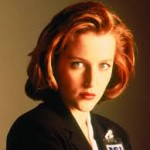
In space the need for Geek Support characters remains vital, although they may not make it onto the landing party very often. Captain Kirk would have been in a lot more trouble without his Chief Engineer, miracle worker Scotty, ready and willing to amp up the warp drive and beam him out of sticky situations, but Scotty is usually left behind in engineering to keep things ticking over rather than exploring the brave new worlds that the Enterprise is seeking out.
It’s not all hopeless though. Geeks are beginning to move out of the lab and into the field without losing any of their niche. It’s notable that the newer version of Scotty saves the day by getting off the ship and running around in enemy territory in Into Darkness as well as by providing an impressive multi-beaming rescue from the safety of the transporter room console during the inaugural film of the reboot series. Geeks are beginning to multitask, it would seem. Simon Pegg has already played one character who receives this type of ‘promotion’ in the form of Benji Dunn, who provided technician support in Mission Impossible III and was promoted to the status of Field Agent by the time of Mission Impossible: Ghost Protocol
Geeks might often be cast in a role slightly stepped back from the front line, but that doesn’t mean that the Geek Support aren’t willing to face risk and danger in order to support the heroes. In Pacific Rim, Marshal Pentecost might have the plan and Gypsy Danger certainly had the moves, but it was Gottlieb and Geiszler, the bickering scientists, who risked brain death for their theories and worked out that the original plan would fail, putting aside huge personal differences to work together and find out the information. When the chips are down, the Geek Support characters prove that they’ve got what it takes and step up to save the day. When the crew of Morpheus’ Nebuchadnezzar were attacked and betrayed by Cypher, it was Operator Tank who stepped up while injured to save the day and get our heroes safely home.
More and more tech support roles are being given to female characters as new cult TV series emerge. Veronica Mars might be the super-sleuth of Neptune High and perfectly tech literate in her own right, when she needs support, she turns to Mac, the resident computer genius. Oliver Queen makes frequent visits to Felicity Smoak at Queen Consolidated, to ask for her help with various projects for his work as the Green Arrow. Meanwhile, hunters Sam and Dean, having learned the value of Geek Support in the form of Ash in the early series of Supernatural, know that they can turn to Charlie for tech based help in later episodes.
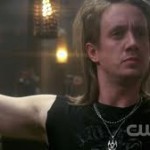
One Geek Support character who has actively turned away from the field based hero role appears in the recent Bond film, Skyfall. Bond is assisted by a unnamed black female agent, who can drive, shoot, wisecrack and hold her own just as effectively as he can. Eventually though, she chooses to step back from agent status and work in an administration based role. It’s refreshing to see this presented as a choice for a liberated young woman rather than something which is forced upon her, although she did shoot Bond in her first assignment which may have influenced her decision and may undermine her abilities in the eyes of the more traditional fans. At least now we know, however, that Miss Moneypenny for the 21st century is just as capable of kicking some bad guy ass as the agents who wait outside M’s door for her permission to go in.
Even for the more active female Geek Support characters, it is notable that they end up leaving their sanctuary of tech and research out of necessity rather than desire. Even Evie Carnahan, who went on to play an important role in the events of The Mummy and continued her work in the field alongside her husband Rick O’Connell, was influenced primarily by the rejection of her application to work with the Bembridge scholars. It was this which drove her toward field work, as this was the area where her application was judged to be most lacking. Had Evie been allowed to join them without gathering this experience, she may have stayed within her libraries for the rest of time. Lucky for the fans of the movie series that she didn’t, however.
Librarians and library lovers play important roles in supporting the heroes of our stories, and increasingly have become more active as their series have progressed. Ron Weasley may mock his bookish friend Hermione for her interest in books (‘it’s what Hermione does. When in doubt, go to the library!’), but it is her books and her logical thinking which guide Harry through his quest to locate and destroy Voldermort’s horcruxes. Meanwhile, feminist icon Buffy the Vampire Slayer’s efforts toward saving the world would not have been anywhere near so successful without being supported by her friend Willow’s hacking skills and the resources of the Mr Giles’ school library, where everyone’s willing to get down with the research to identify this week’s Big Bad. While Giles, Willow and Xander do become more active in the slaying part of the series later on, it is their research skills and work behind the scenes which are most useful to Buffy, especially in the early series. There is a reason why every female slayer has an older and more learned watcher with experience and knowledge at his disposal to guide her efforts, although Buffy as a series is notable for reversing the gender norm within that dichotomy.
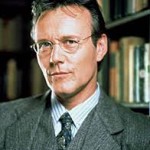
The Geek Support cast members even act as consciences to the heroes who go too far or know that they risk becoming lost to their cause. Take for example Lucius Fox, who starts out during Batman Begins stuck in Applied Sciences at Wayne Enterprises but is later promoted by Bruce to CEO, showing just how much his character and judgement are valued by Bruce. Indeed, when Batman uses Fox’s technology to spy on Gotham, the only person he trust to ensure its destruction is the man who made it.
Geeks are slowly pulling together their credentials as being more than just the brains behind the brawn. It’s been a great evolution over time from being the unacknowledged purveyors of support to becoming active and capable characters out in the field of the action. We’re entering the final stage of this evolution now, though the Marvel film franchise, which has finally given us a Geek who is fully in charge of his own show. Who does the research, reads the homework, invents the gadgets and comes up with the techie solutions. Who also wears the tux, fights the good fight, all while blessed with the money, the social status, the looks and the love interest and the full acceptance of the public who know exactly who he is. He is Iron Man. Mr Tony Stark – take a bow, as you usher in the new era of the Geek Superhero and show that after long years of patient waiting for their time in the spotlight, the geeks truly shall inherit the earth.


